Zhangjiajie Glass Bridge#
Photos by Stanislav Sedov and Sergey Semenov
members of the AirPano Team that is a member of the global-geography Consortium.
3 April 2019
with kind permission of AirPano
A walk through the glass bridge can be compared to a skywalk: you have a feeling there is nothing under your feet and it seems you are flying above the ground. The idea of creating such a breathtaking effect has long been brought to life: for example, some of the constructions of Tower Bridge that was built at the end of the 19th century have glass inserts. But the first fully glassed bridges began to be constructed only in the 21st century because only by this time technologies could guarantee safety and strength of the materials.
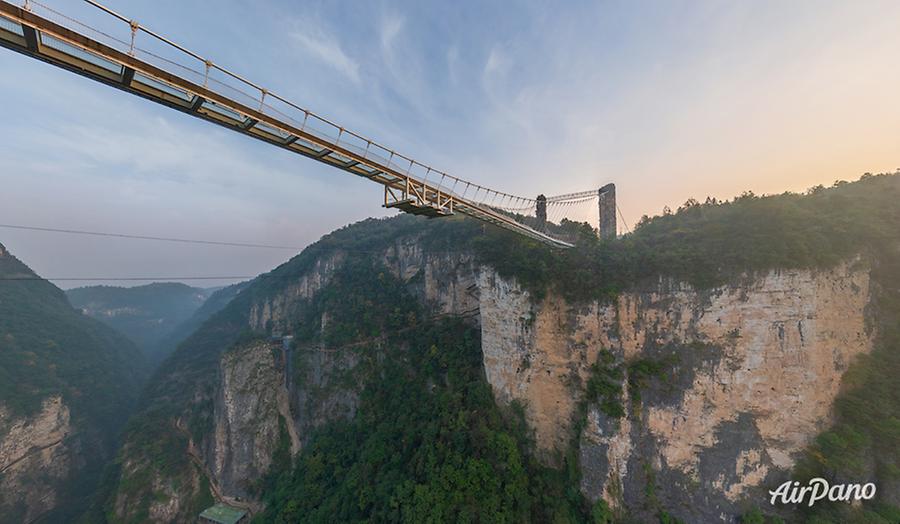
© AirPano
Now the glass bridges are found all over the world, from Austria to Canada, but China is the record-holder in the quantity and characteristics. Some of the bridges are built over picturesque rivers and ravines, and the highest among them is also located here: Zhangjiajie Glass Bridge built in Hunan Province in 2016.
The bridge measured 6 meters in breadth was constructed between two mountain cliffs around 300 meters above the ground. Till 2018, it was also the longest glass bridge in the world with 430 meters in length. In February, the record has passed to Hongyagu Glass Bridge in Hebei Province. Since its height is only 218 meters, Zhangjiajie Glass Bridge is still the highest one in the world.
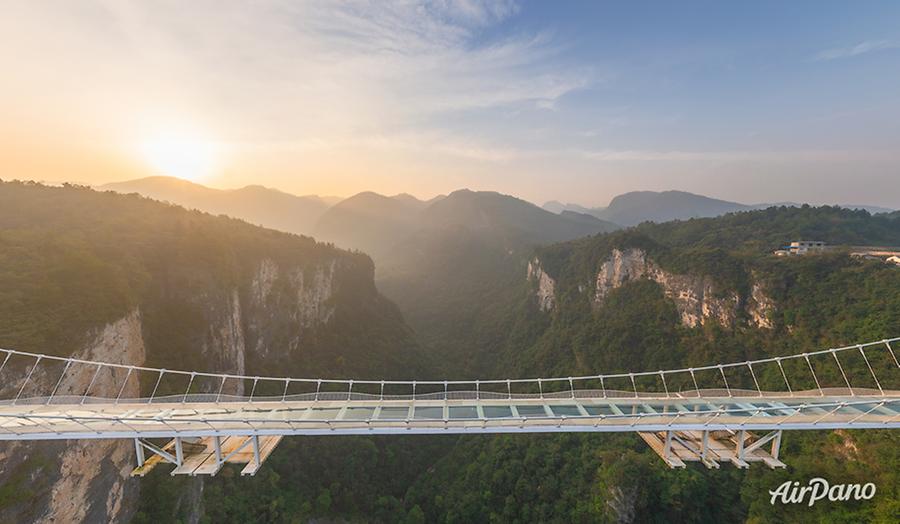
© AirPano
The bridge was designed by Israeli architect Haim Dotan. To build the bridge, engineers erected 4 support pillars on the edges of the walls of the canyon, then attached steel frames and 120 glass panels. Each of them has three layers of tempered glass. The initial project of the bridge supposed the use of wood, but then someone suggested using the glass instead, and the calculations showed that glass panels of 5 cm thick will make the surface of the bridge 25 times stronger.
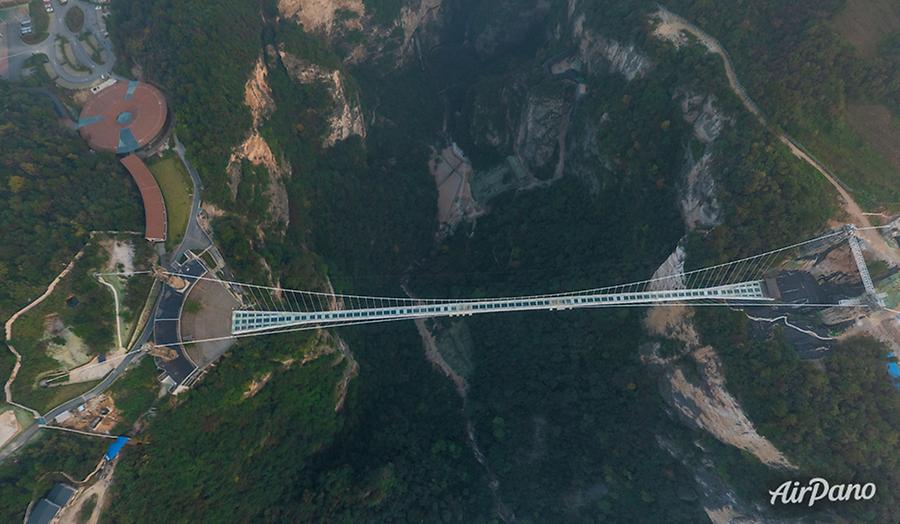
© AirPano
By reflecting the landscape, the bridge merges with it and becomes "transparent". It is also surrounded by the fog, artificially created with the use of special water dispensers, so that visitors have a feeling of walking above the clouds.
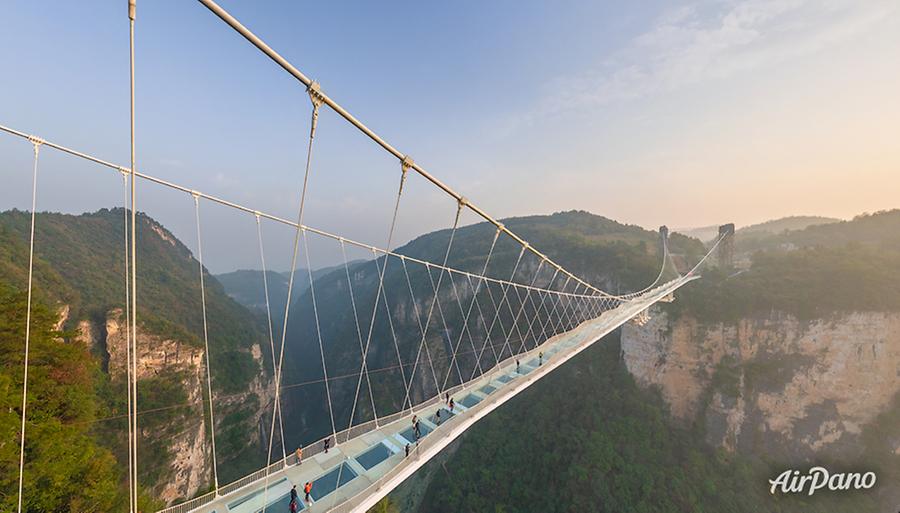
© AirPano
The bridge has facilities for making bungee-jumps — an extreme activity of jumping down at 265 metres down using a rope. The bridge also opens a marvellous view of the Zhangjiajie National Forest Park — the place that was officially recognized as a UNESCO World Heritage Site. This park was unofficially named "Avatar Park": even though the filming was carried out in other places, it is widely thought that the Zhangjiajie Park was the place where James Cameron was inspired to create his movie.
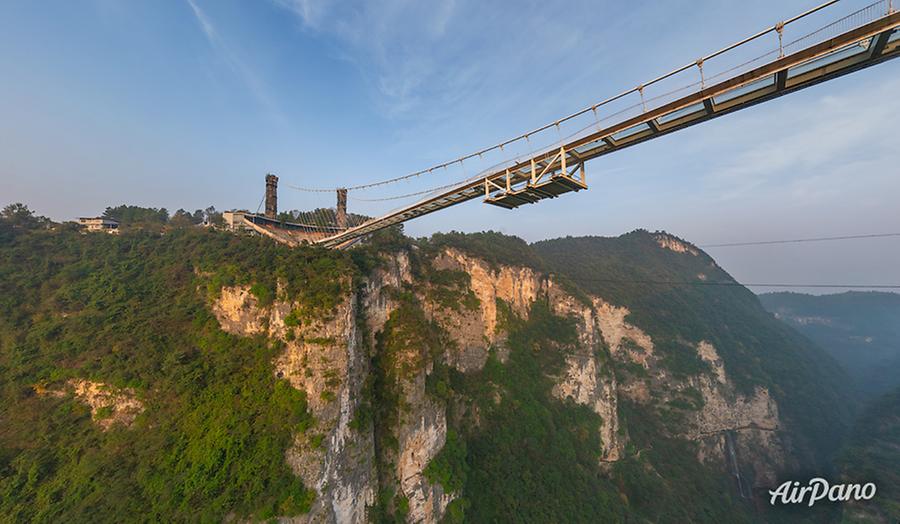
© AirPano
Zhangjiajie Bridge has set ten world records in the field of design and architecture. To demonstrate its strength, a two-ton truck drove through the bridge at the opening day. The experiment was a success and now the capability of the bridge is 800 people simultaneously standing on the bridge, while the daily number of visitors should be not more than 8,000 people.
We invite you to have a walk through the highest glass bridge in the world!
2018) panoramas of Zhangjiajie Glass Bridge